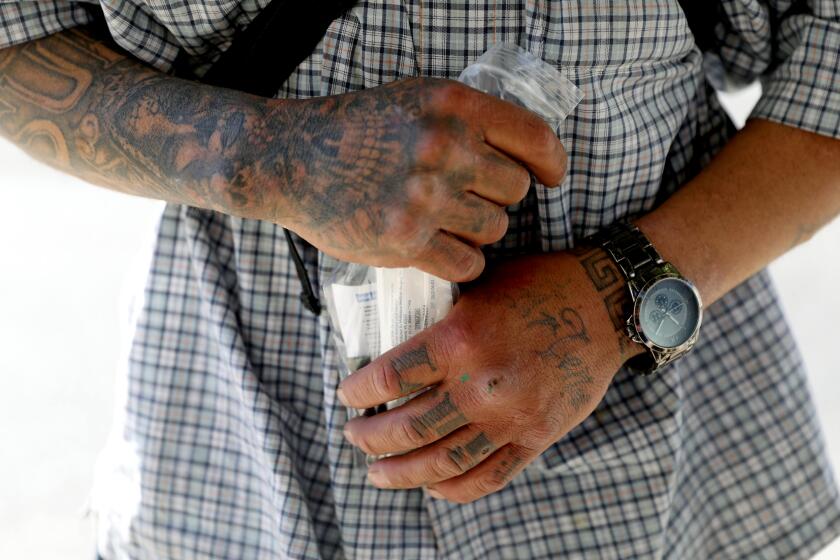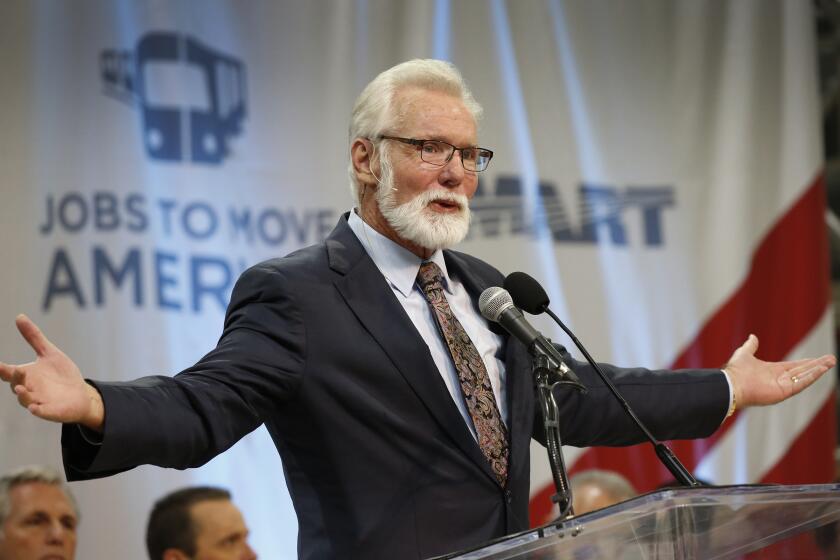Ferraro Backs Appointing Panel to Reform Charter
- Share via
Concerned that a proposal backed by Mayor Richard Riordan for reforming Los Angeles’ 71-year-old governing document would trigger chaos and undermine the City Council’s authority, Council President John Ferraro is working on an alternative approach to give elected lawmakers more control over the reform process.
Ferraro spoke Monday with Riordan to try to reach a compromise that could garner broad support at City Hall. But regardless of whether the mayor signs on, Ferraro said Tuesday that he plans to propose--perhaps as early as Friday--an appointed commission of experts in public policy and constitutional law that would present its rewritten charter to the City Council before submitting it to the voters for approval.
Riordan last week joined a campaign by San Fernando Valley business leaders to elect a 15-member charter reform commission whose work would go directly on the ballot without input from the sitting council, and pledged to spend up to $800,000 of his own money backing it. That move outraged many council members, who accused Riordan of trying to use his personal wealth to funnel power away from the legislative body toward the chief executive.
Fire Commissioner David Fleming, a Riordan appointee who is spearheading the charter reform drive, said in a recent interview that he envisions a city governed by several dozen neighborhood councils, whose presidents would replace the City Council.
“The politics of this really stink,” said City Councilwoman Jackie Goldberg, who remains unconvinced that the charter needs an overhaul in the first place. “My constituents do not expect me to abdicate advocacy on their behalf on any issue that concerns them.”
Ferraro, a Riordan ally who typically plays peacemaker on the 15-member council, said his chief concern is that an elected commission would lack the expertise to tackle the 600-page charter, which has been amended some 400 times. He said he would prefer a panel--probably of nine--appointed by himself and the mayor to represent the city’s diversity while bringing relevant skills to the charter-writing table.
“This election--I don’t know how many people would run. We wouldn’t know what we’d get, whether they’d know anything about the charter,” said Ferraro, who has sat on the council for three decades.
Although Ferraro’s alternative would allow the council to review and probably amend the reformed charter before placing it on the ballot for approval, he said the council would be wise to give the commissioners independence.
“Obviously, it would come back to the council,” he said. “But the council would have to realize that if it’s a good charter, and they change it too much, there might be a move to put it [the commission’s recommendations] on the ballot by initiative.”
Ferraro’s ideas, predictably, won warm reception among his colleagues, but a chilly reaction from Fleming and Riordan’s office. Mayoral press secretary Noelia Rodriguez said key components of the initiative are having the commissioners elected rather than appointed and preventing the council from watering down the proposed changes. Fleming rejected an earlier council proposal for an appointed commission.
“This is the people’s government. It doesn’t belong to the City Council, period. They were elected by the people, but they weren’t given the authority to do the people’s thinking for them,” said Fleming, a Valley businessman. “They go to the people every four years and say, ‘Elect me, trust me,’ and yet they don’t trust the people. Maybe they think the people are stupid.”
Fleming added that the elected commission could consult experts and use city attorneys to write specific language.
“Joe Citizen, or Josephine Citizen, can--and, given the opportunity, will--tell people what they want,” agreed Rodriguez. “There’s a threat to power here. That’s why some of the comments are being made. There’s a threat to the people who have the power now.”
But like Goldberg, Councilman Nate Holden said the council deserves power over the charter changes because members are democratically elected.
“We’re closest to the people. We’re grass-roots elected officials,” Holden said. “We go door to door and talk to the people in the churches, the synagogues, the neighborhoods, the block clubs. They tell us what they want, and we listen to them.”
If the two camps continue to disagree, voters could end up with two sets of charter reforms on the ballot. For now, though, Ferraro is still hoping to bring Riordan and the council together in a compromise. A separate proposal by Councilman Mike Feuer, which calls for a 26-member appointed panel whose work could be sent directly to voters, is scheduled for a vote Friday.
More to Read
Sign up for Essential California
The most important California stories and recommendations in your inbox every morning.
You may occasionally receive promotional content from the Los Angeles Times.










